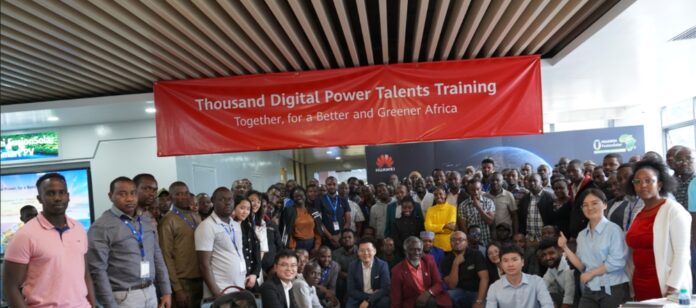Huawei Kenya has kicked off the race to plug the national demand for qualified labour for the solar industry by pushing the pedal with the first cohort of 120 engineers undergoing technical capacity building in Nairobi under its Thousand Digital Power Talents Programme.
Speaking at the opening ceremony, Mr Oliver Dupeng, CEO of Eastern Africa Digital Power Business said that recent research by the Kenya Institute of Public Policy Research and Analysis (KIPPRA) had confirmed that the country’s solar industry was set to create more than 50,000 jobs in the next year as uptake of off-grid electricity gathers pace. This, he noted, calls for a rapid skilling of the potential workforce to ensure that there is a pool of qualified technicians who can handle the assignments effectively and efficiently.
Huawei to train more Solar Engineers as demand rises
At 40 cents each
h, the bulk of these jobs is primarily in operation & maintenance and construction and installation respectively while manufacturing follows at 12%, distribution at 5% and Research and Development at 3%.
“We encourage women particularly to participate to earn a certification as solar engineers since the data shows that their population in the industry is low at around 40 per cent,” he said. Women in the sector tend to work in administrative and support functions and are under-represented in management and technical positions.
During explained that with Kenya’s estimated solar potential of 15,000 MW and the total value of Kshs 13.5 billion, the current total installed capacity of 100MW shows that the country has barely scratched the surface. The firm’s mission, he stated, is to integrate digital and power electronics technologies, develop clean power, and enable energy digitalization to drive the energy revolution for a better, greener future, noting that standardized Smart PV installation processes were available to make installation more efficient.
The local sessions are a continuation of the previous ones that took place at Huawei South Africa. Themed “Together, for a Better and Greener Africa” the programme aims to bridge the capability gap in the solar industry, a major challenge that impedes the solar industry. Huawei Kenya will host additional training in 2023 to intensify upskilling solar practitioners with knowledge of its digital power technology and solutions, as well as practical installation skills.
Shocking! Census Official Urinates In Families Sitting Room As children watch
Echoing his remarks, Andrew Amadi, CEO of Kenya Renewable Energy Association (KEREA) said that industry data placed the expected annual job growth for the solar industry at 26 per cent between 2018 and 2024.
“Capacity building is extremely important as currently there are at least 27 licences accorded locally granting licence owners the ability to generate power. This in turn results in THE development of single project to project basis thus creating high overhead energy costs,” he noted.
The training is in line with KIPPRA policy recommendations including instituting policies that promote knowledge and technology accumulation, new business incubation, and promoting industrial clusters that provide incentives that accelerate localization of the portions of the value chain. Other recommendations are to strengthen the emphasis on vocational training as opposed to shifting to the universities as the key institutes supporting capacity building.








